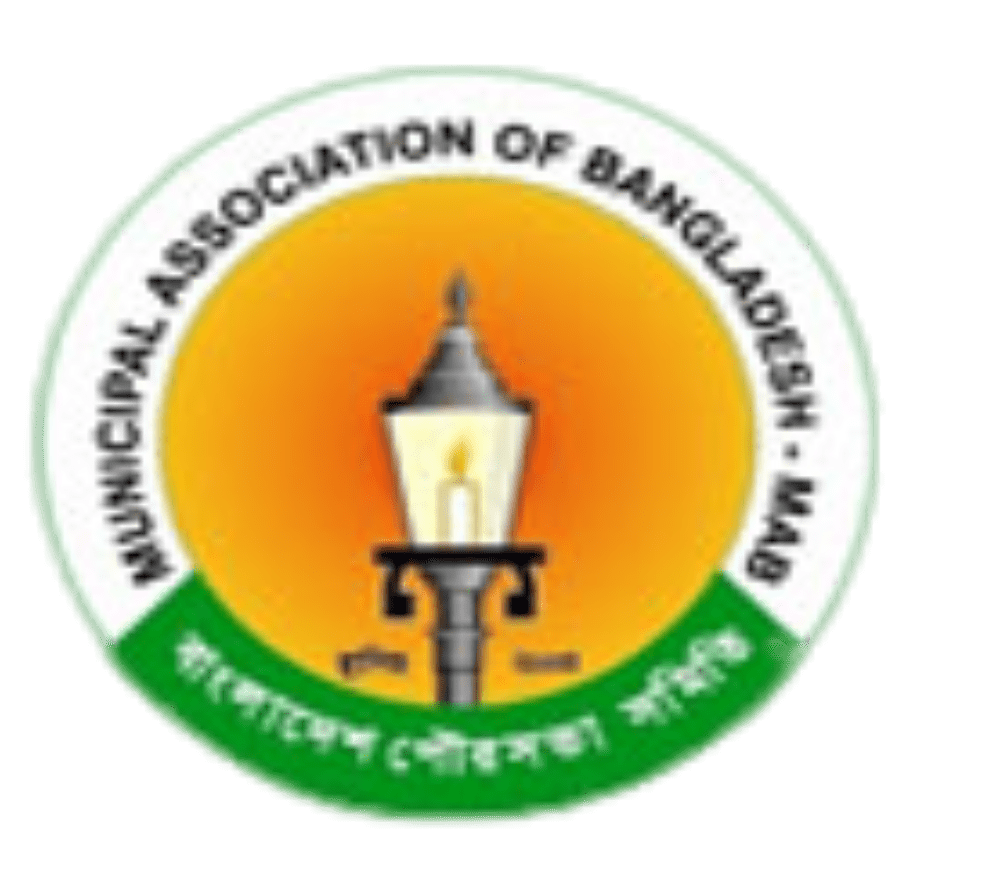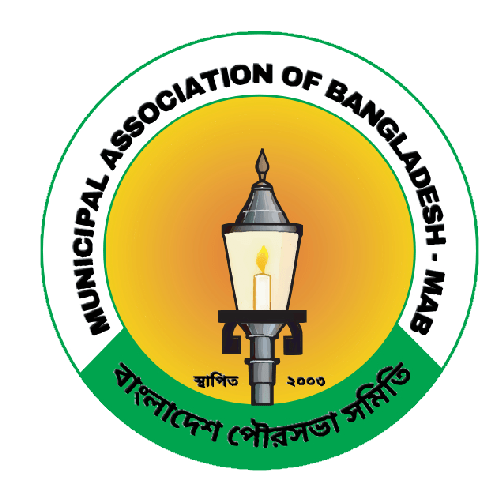Transforming Smaller Urban Centres through Local Economic Development
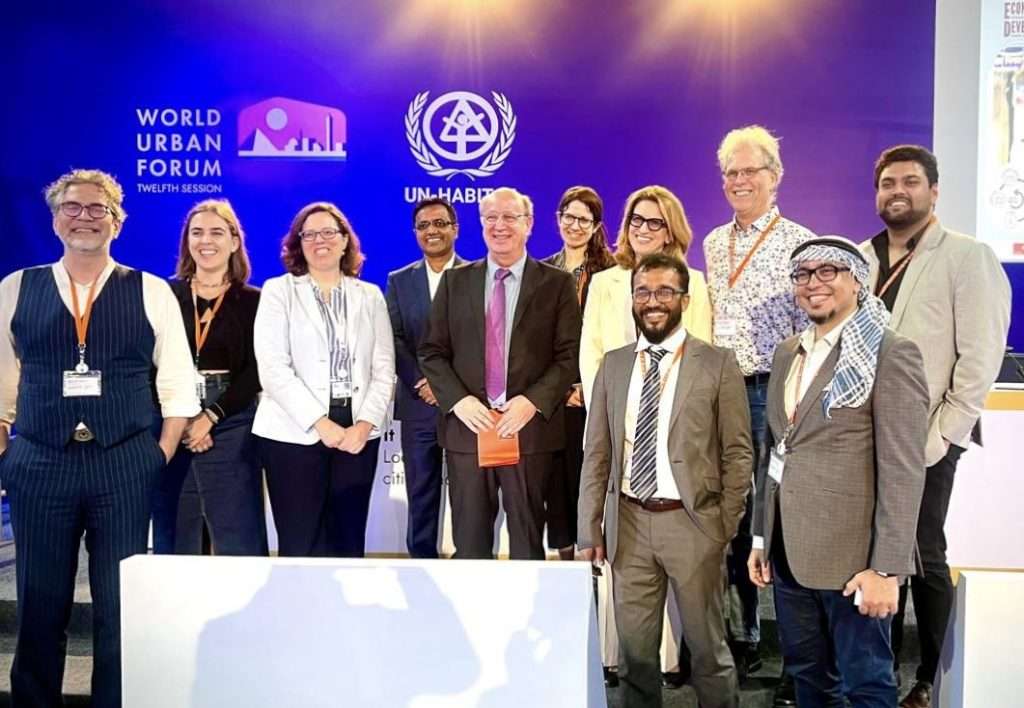
At the World Urban Forum 12 Egypt in Cairo, hosted by the UN-Habitat, PRABRIDDHI project showcased its “Bangla Local Economic Development (LED) Model” highlighting the power of decentralised urban governance to empower secondary cities and drive resilient communities. Jointly funded by the Governments of Bangladesh and Switzerland, and co-implemented by the Local Government Division (LGD) and Swisscontact, the project introduced the transformative “Bangla Model” that prioritises sustainable growth and inclusive governance in secondary cities. This initiative showcases how the LED model can be adapted globally for sustainable urban development. “Even with limited resources, much can be achieved when the public and private sectors work together and plan accordingly.” Markus Ehmann, Team Leader of PRABRIDDHI The potential of secondary cities – empowering regional urban centres for balanced growth In Bangladesh, cities like Bogura and Jashore are key examples of secondary cities with vast potential. Secondary cities refer to smaller urban centers outside of the main metropolitan or capital city. These cities are often regional hubs that serve as important links between rural areas and larger economic centres, playing a critical role in national economic networks. However, secondary cities frequently receive less attention and fewer resources compared to major urban centres, leaving them with limited infrastructure, services, and development support. By focusing on these cities, initiatives such as the PRABRIDDHI project support balanced urbanisation, addressing the unique social and economic needs of these communities. This approach enables localised development that not only strengthens the economies of these smaller cities but also reduces over-reliance on larger cities like Dhaka. By empowering secondary cities, PRABRIDDHI aims to decentralise growth, enhance regional equity, and create resilient urban communities that contribute to the broader national economy. The session on “Sustaining Local Economic Development in Secondary Cities,” was opened by an inspiring welcome address by Ms. Valérie Liechti, Head of International Cooperation at the Embassy of Switzerland in Egypt, that set the stage for a dynamic discussion on local economic growth. “In many countries and municipalities, numerous revenue streams remain underutilised, despite a wealth of opportunity. Unlocking these streams requires capacity-building, and we can look to examples in Bangladesh, where municipalities have implemented reforms and are reinvesting generated revenues into local economic development.” Ms. Valérie Liechti, Head of International Cooperation at the Embassy of Switzerland in Egypt “After overcoming the setbacks of past challenges, the government is committed to driving local economic development in secondary cities through initiatives such as PRABRIDDHI. These efforts are laying the foundation for sustainable economic growth, and as a government, we are committed to expanding these models to ensure the long-term resilience of our cities and the nation as a whole.” Mr. Mohammad Mahbubul Haque, Joint Secretary of the Urban Development 2 Branch of the LGD, under MoLGRD&C, and Project Director of PRABRIDDHI Through collaborative, locally driven solutions, PRABRIDDHI is helping secondary cities build sustainable economic foundations while addressing challenges like unemployment and inequality. These efforts align with global development goals, including SDG 1 (No Poverty), SDG 8 (Decent Work and Economic Growth), and SDG 11 (Sustainable Cities and Communities). Collection of case studies Introducing a method for LED requires convincing stakeholders, achieving quick wins, and ensuring long-term progress. To succeed, it is essential to engage municipalities and decision-makers while also forming new governance structures that support local economic growth. This booklet presents seven examples of local initiatives that have transformed economies in secondary cities with no prior experience or knowledge of LED. These cases are drawn from Bangladesh, a rapidly growing and densely populated country. In each example, the cities faced limited resources, struggling to pay salaries and provide basic services. Despite these challenges, over just five years, 58 LED initiatives have been implemented, significantly impacting service delivery, employment, quality of work, and local entrepreneurship. Each case highlights how urgent urban economic challenges were tackled head-on. Together, they reveal seven secrets for success. Download Brochure: Impact Inspirations – Local Economic Development in Secondary Cities in Bangladesh
Bhairab Municipality Spearheads Local Economic Development with One Stop Service Center Launch
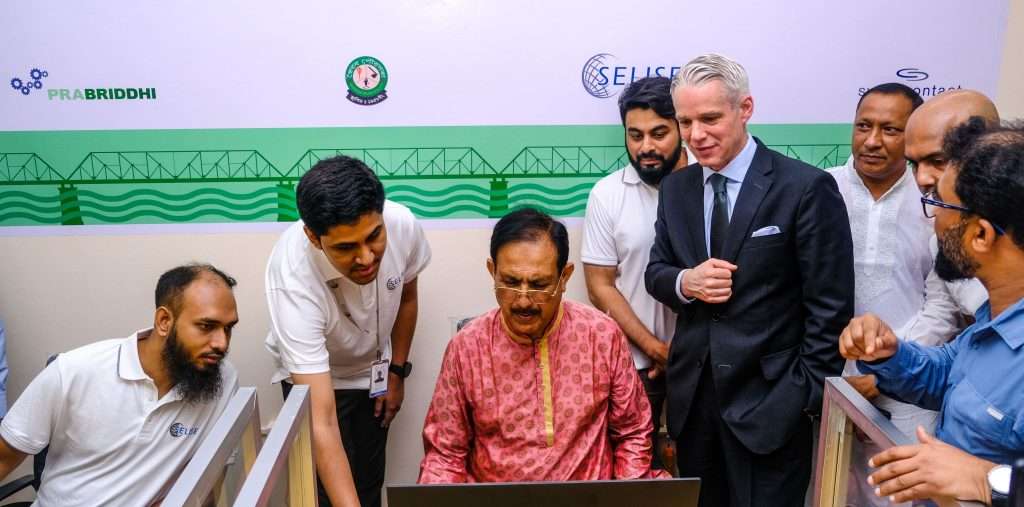
Bhairab Municipality, with support from PRABRIDDHI – a local economic development (LED) project jointly funded by the Government of Bangladesh and Switzerland, and implementation assistance from SELISE Digital Platforms, marked a significant milestone towards local economic development with the inauguration of One Stop Service Center (OSSC). Mr. Reto Renggli, Ambassador of Switzerland to Bangladesh, and Md. Iftekhar Hossain Beno, Mayor of Bhairab Municipality jointly inaugurated the launch of the OSSC at the municipality premises on 26 May 2024. This pioneering initiative promises to streamline administrative processes, enhance accessibility to public services, and foster socio-economic development within the municipality. The OSSC aims to digitise administrative processes and enhance accessibility to public services. By centralising essential services under one roof, the OSSC seeks to promote efficiency, transparency, and citizen-centric governance. From licensing and permit issuance to citizen facilitation and information dissemination, the center will cater to the diverse needs of residents, businesses, and visitors, driving socio-economic development and fostering inclusive growth. “The inauguration of the One Stop Service Center is a testament to the strong partnership between Bangladesh and Switzerland. This center embodies the spirit of innovation and cooperation, serving as a model for sustainable local economic development.” Special Guest Mr. Reto Renggli, Ambassador of Switzerland to Bangladesh “With the inauguration of the One Stop Service Center, Bhairab takes a significant stride towards inclusive development and citizen-centric governance. This initiative reflects our dedication to fostering economic growth and enhancing the quality of life for our residents.” Md. Iftekhar Hossain Beno, Mayor of Bhairab “Through collaborative efforts, innovative solutions, and digitisation, we are shaping a brighter future for Bhairab, fostering sustainable growth and prosperity at the grassroots level” Mr. Markus Ehmann, Team Leader of PRABRIDDHI “The launch of the One Stop Service Center underscores our commitment to leveraging digital solutions for social impact. Through technology-driven innovation, we empower municipalities like Bhairab to enhance service delivery and drive socio-economic progress.” Julian Webber, the CEO of SELISE Digital Platforms Co-implemented by Local Government Division (LGD) and Swisscontact, the PRABRIDDHI project is currently being implemented in seven municipalities – Bhairab, Bogura, Cox’s Bazar, Dinajpur, Kushtia, Jashore and Shibganj.
Youth and municipality cleans up Bogura city with strategic support from PRABRIDDHI
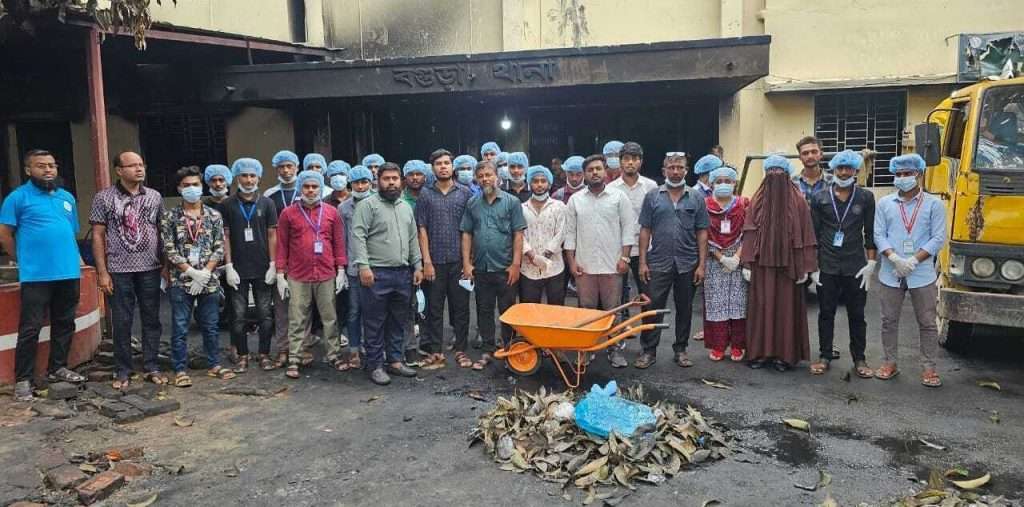
PRABRIDDHI supported a group of youth volunteers who approached the municipality for a cleanup campaign. This collaboration aligns with PRABRIDDHI’s Municipal Solid Waste (MSW) management initiative, focusing on waste segregation and sustainable practices, turning the city’s recovery into a community-driven success. In the aftermath of the widespread student-people protests in July and August 2024, a remarkable initiative had emerged led by youth committed to restoring their communities. With the usual cleaning services of the city corporation unable to cope with the removal of the debris from the recent clashes, young students from various educational institutions stepped up to help restore the city to its former state. In Bogura, a group of local youth initiated a conversation about a collaborative cleaning campaign with the municipality. The campaign received a significant boost when PRABRIDDHI supported them to lead a coordinated cleanup effort that aligns with the project’s ongoing Municipal Solid Waste (MSW) management initiative. Since March 2024, PRABRIDDHI implemented by Swisscontact, has been supporting Bogura municipality in implementing the MSW model, which is designed to enhance waste management through an integrated system of waste collection, segregation, and sustainable disposal. It involves community-based organizations (CBOs) and focuses on reducing open dumping, promoting recycling and composting, and generating revenue through service fees. The model aims to improve waste management practices and encourage long-term behavior change within the community. In line with this initiative, the project was able to resume its activities in Bogura successfully. PRABRIDDHI supported the youth in collaborating with the Bogura municipality and local ward councilors. The municipality provided them with necessary supplies and resources including leaflets, brochures, festoons and cleaning equipment, to not only clean up the city, but also to run an awareness campaign with city dwellers, shopkeepers, hawkers, and pedestrians regarding waste management. A detailed plan was developed, dividing the young volunteers into four teams for a comprehensive street cleaning operation. On August 12th, the teams commenced cleaning efforts at Shaat Matha, a central intersection. The volunteers swiftly mobilized to clear waste in the morning, quickly transforming a spontaneous effort into an organized citywide cleanup. The volunteers along with the municipal officers came forward to clean and set up Bogura Sadar Thana, ensuring that the police could resume their duties in a clean and safe environment. They engaged with shopkeepers, hawkers, and pedestrians, promoting waste segregation and proper disposal practices whilst distributing leaflets and brochures. They promoted the use of personal containers for waste disposal instead of littering. The volunteers also highlighted specific no-dumping zones by placing festoons, aiming to educate the public about proper disposal points and inspire them to motivate others. The distinction between biodegradable and non-biodegradable waste and the benefits of composting was explained to residents through this campaign. These efforts went beyond immediate debris removal, supporting in advancing PRABRIDDHI’s goals of waste segregation and sustainable disposal practices. As Bogura moves towards recovery, the effective collaboration between, municipality, young volunteers and PRABRIDDHI highlights the importance of community-driven initiatives. The successful campaign has inspired dialogues to appoint youth representatives in each ward to monitor the MSW model’s implementation, giving them an opportunity to work part-time as volunteers in community services. This strategic move will not only engage young members of the community in development but also strengthen the overall waste management system in Bogura.
Unveiling Key Advances in Production at Jashore Light Engineering Fair 2024
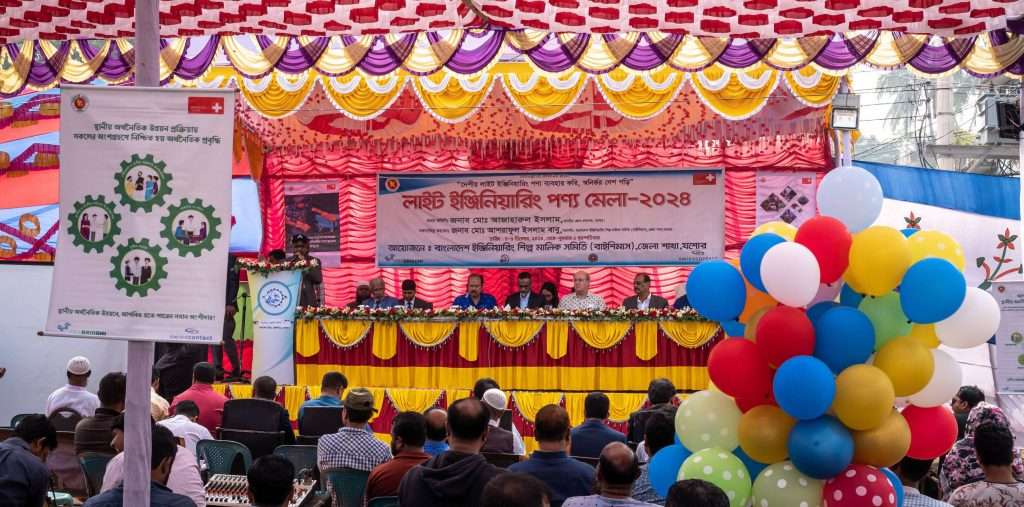
Jashore Municipality hosted the Light Engineering Fair 2024 on December 4th and 5th, showcasing the district’s vital contribution to Bangladesh’s local economic development. Supported by the PRABRIDDHI initiative, the fair showcased the remarkable innovation and growth potential of Jashore’s thriving Light Engineering (LE) sector, marking a significant milestone in reinforcing Jashore’s position as a center for engineering excellence and innovation. Jashore’s Light Engineering Fair 2024 brought together industry leaders, government representatives, and academic institutions to highlight the achievements of the LE sector within the municipality. Organized by Bangladesh Engineering Industry Owners Association (BEIOA) in collaboration with PRABRIDDHI and Jashore University of Science and Technology (JUST) this fair aimed to enhance the expansion of the LE sector’s market reach. Funded by the governments of Bangladesh and Switzerland and implemented by Swisscontact, PRABRIDDHI’s efforts to foster local economic development have paved the way for Jashore’s LE sector to gain more recognition. Since 2022, PRABRIDDHI has partnered with JUST and BEIOA to strengthen Jashore’s light engineering sector. As a highlight of the Light Engineering Fair, the production manual for Jashore’s six top-selling light engineering products was successfully unveiled. This significant milestone stems from a collaborative action research initiative jointly undertaken by JUST and the BEIOA. The LE fair featured the six advanced products developed, underscoring the region’s capacity for technological excellence and market competitiveness. The Light Engineering Fair showcased Jashore’s innovation and technical expertise not only through their cutting-edge products, but also live demonstrations. Networking sessions facilitated discussions between local producers and potential buyers including regional entrepreneurs and associations from Kushtia, paving the way for collaborative opportunities. This engagement also allowed attendees to explore partnerships that could expand the market for Jashore-made products. “I will endorse further fair arrangements as this sector directly benefits agriculture in our country. I believe product improvement is a journey that should continue for the overall betterment of this sector.“ The District Commissioner (DC) “The Light Engineering Fair is a testament to Jashore’s transformative journey in establishing itself as a center of innovation and quality. By fostering collaboration between academia, industry, and local producers, we are not only strengthening the LE sector but also creating a ripple effect for sustainable economic growth. PRABRIDDHI remains committed to supporting initiatives that empower local enterprises to compete and thrive on a global scale.“ Markus Ehmann, Team Leader, PRABRIDDHI The fair further highlighted the promotion of “Made in Jashore” as a symbol of quality and reliability, focusing on connecting regional innovation with global standards. Aligned with BEIOA’s Vision 2030, the event emphasized advanced technology, branding, and digitalization to position Jashore’s products on the global stage. Moving forward, the focus remains on expanding training programs to enhance workforce skills, ensuring robust quality control for consistent standards, and fostering international alliances to secure long-term market access. “We are embracing advanced technologies, strategic branding, and digitalization to elevate Jashore’s global presence, set new industry benchmarks, and position its light engineering products as a top international choice. These manuals will serve as vital knowledge resources, and we hope that LE entrepreneurs will adopt them to sustain and further advance these efforts, driving long-term growth and securing a competitive edge for the sector.“ Md. Ashraful Islam Babu, President of the Jashore chapter of BEIOA PRABRIDDHI’s comprehensive approach has positioned Jashore at a stronger locus in Bangladesh’s light engineering industry. With continued innovation and collaboration, the region is set to achieve sustainable growth and global recognition.
PRABRIDDHI Project Expands into Cox’s Bazar Municipality: Driving Sustainable Economic Development
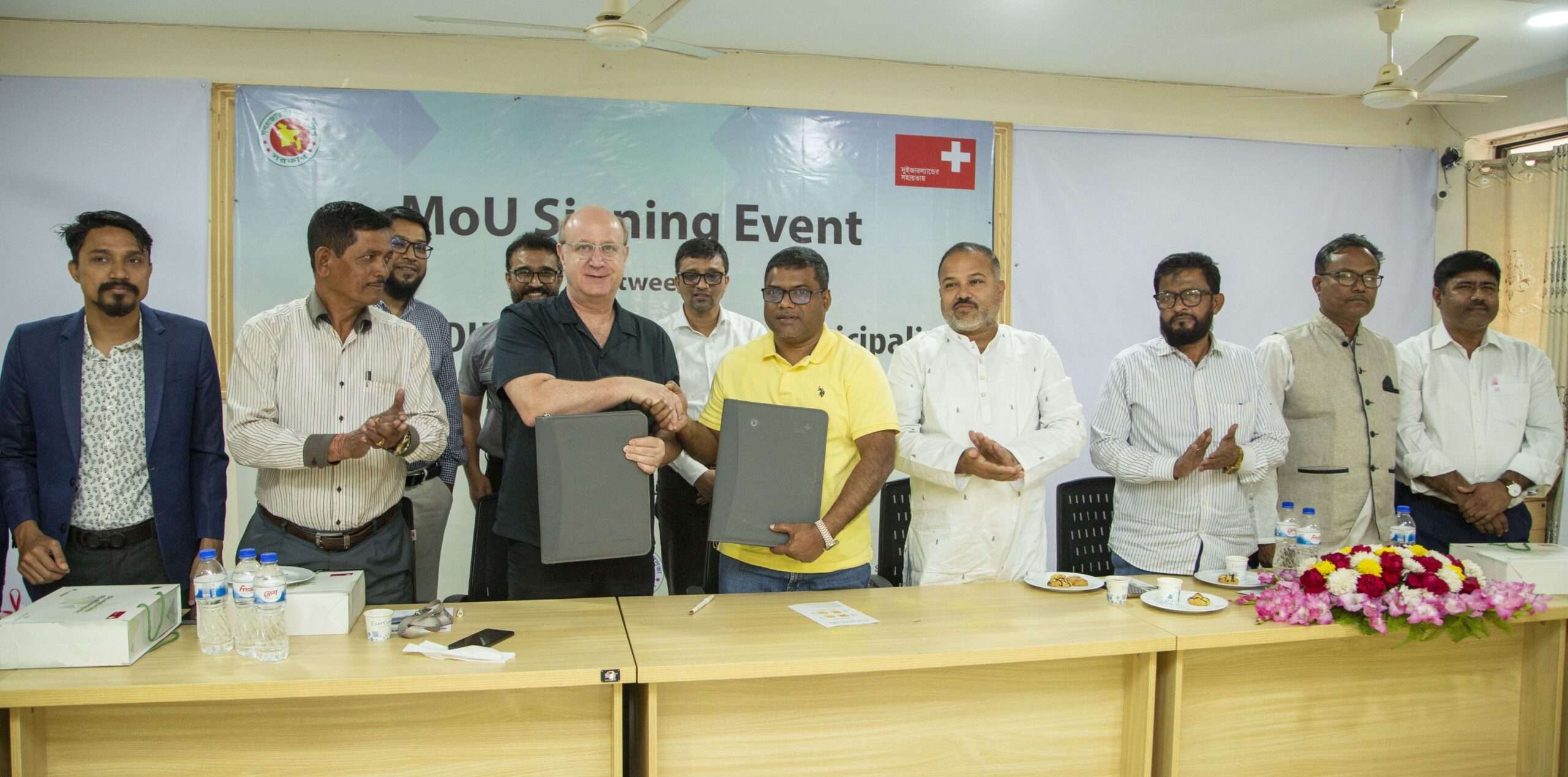
PRABRIDDHI, a local economic development (LED) project jointly funded by Switzerland and the Government of Bangladesh, has expanded its intervention into Cox’s Bazar municipality in an effort to foster sustainable economic development at a local level. A Memorandum of Understanding (MoU) has been signed between the project and the municipality for this expansion on Monday (19 February 2024). Home to a population of 167,477 residents, Cox’s Bazar Municipality boasts the distinction of being adjacent to the world’s longest natural sea beach, attracting millions of local and foreign tourists annually. Despite challenges posed by the Rohingya migrant influx, the municipality has seen a surge in development officials and foreign visitors, contributing significantly to its economic growth. Recent data reveals Cox’s Bazar municipality hosts over 520 hotels, motels, guest houses, and cottages, accommodating more than 120,000 guests. The tourism sector, a vital component of According to Bangladesh Investment Development Authority (BIDA), the country’s economy has witnessed substantial growth, contributing 3% to the GDP in 2019. Cox’s Bazar’s economy thrives on non-agricultural sectors, including trade, services, construction, and fishing, providing diverse employment opportunities. With its strategic geographical location and availability of semi-skilled labor, Cox’s Bazar Municipality stands poised for further Local Economic Development (LED), leveraging its comparative and competitive advantages to fuel sustainable growth. Mahbubur Rahman Chowdhury, the Mayor of Cox’s Bazar expressed enthusiasm for the commencement of the PRABRIDDHI project in the municipality, emphasizing its significance for fostering sustainable economic development. Highlighting the importance of LED initiatives like PRABRIDDHI, the Mayor underscored their role in empowering local communities, stimulating entrepreneurship, and promoting inclusive growth. By leveraging Cox’s Bazar’s unique assets and fostering public-private partnerships, the municipality aims to unlock its full potential, driving prosperity for residents and contributing to Bangladesh’s broader economic vision. The mayor articulated a commitment to embarking on a transformative journey towards a brighter, more resilient future. Markus Ehman, the team leader of PRABRIDDHI, expressed optimism about the project’s expansion into Cox’s Bazar municipality, emphasizing its potential to catalyze sustainable economic growth. He emphasized the significance of local economic development (LED) initiatives in empowering communities and driving inclusive progress. He further highlighted PRABRIDDHI’s commitment to leveraging strategic partnerships and local resources to unlock opportunities and address economic disparities. He reiterated the project’s dedication to supporting Cox’s Bazar in realizing its economic potential and contributing to Bangladesh’s broader development goals. Co-implemented by Local Government Division (LGD) and Swisscontact, the PRABRIDDHI project is currently being implemented in seven municipalities.
BICI program’s working group members gear up to support BIDA in policy reform
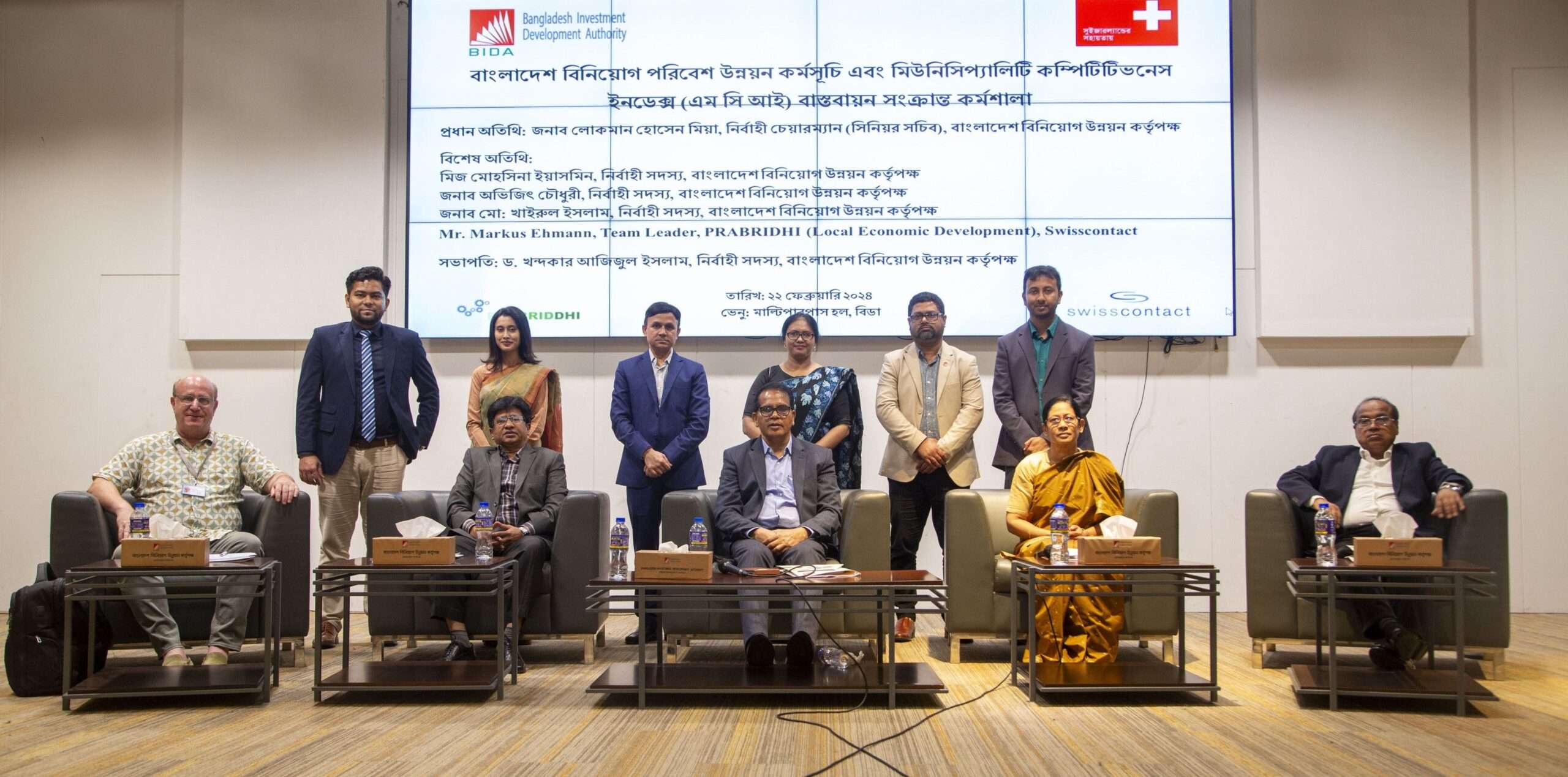
Bangladesh Investment Development Authority (BIDA) has hosted the workshop of the seven-part series to ensure the inter-governmental cooperation among its working group members from different Ministries, Divisions, and Agencies under the “Bangladesh Investment Climate Improvement (BICI) Program”. The inaugural workshop was held at the Multipurpose Hall of BIDA on Thursday, (February 22, 2024). Bangladesh Investment Development Authority (BIDA) was working to implement reform proposal for the positional improvement of the World Bank’s Ease of Doing Business Index by coordinating with various Ministries, Divisions and Agencies. Though the World Bank suspended the Ease of Doing Business program, National Committee for Monitoring Implementation of Doing Business Reforms (NCMID) chaired by the Cabinet Secretary decided to prepare an action plan taking into consideration the socio-economic context of Bangladesh and designed and launched a program by BIDA titled as “Bangladesh Investment Climate Improvement (BICI) Program” to facilitate business and investment across the country. The program encompasses 110 identified reforms under 7 pillars, with seven working groups formed to oversee each pillar’s updates. Additionally, a task force has been established to ensure the effective implementation of the program. PRABRIDDHI, a local economic development project jointly funded by Switzerland and the Government of Bangladesh, aims to support BIDA in achieving the objectives of the BICI program by facilitating collaboration between BIDA and the Local Government Division (LGD). This collaboration will enhance the implementation of the BICI program by reaching all municipalities in Bangladesh and collecting data on the business environment nationwide. The collaboration will also support BIDA in developing and integrating the Municipality Competitiveness Index (MCI) into the BICI program. The MCI will serve as a robust tool for assessing the competitiveness of municipalities across Bangladesh, measuring ease of doing business and the effectiveness of economic governance at the municipal level. It will offer municipalities a benchmark to monitor their progress in creating a favorable business environment. The aim of the workshop was to orient the working group members on the overall BICI program and introduce the 7 pillars to the members. It was a forum where the Municipality Competitiveness Index (MCI) that is relevant to the 5 pillars was introduced to the broader audience with an objective to increase the effort of local government in terms of service delivery and business enabling environment. The working group members benefited from the concept of MCI while packaging the reform agendas that will be ultimately submitted to the task force for the implementation process. “The BICI program is all about helping Bangladesh grow. If investment is increased in Bangladesh, so many people will be benefitted. I extend my heartfelt gratitude to PRABRIDDHI for their invaluable contribution to our nation’s economic growth.” Lokman Hossain Miah, Executive Chairman (Senior Secretary), Bangladesh Investment Development Authority (BIDA) “Today’s workshop marks a pivotal moment in our mission at PRABRIDDHI. Collaborating closely with BIDA, we are harnessing collective expertise to propel the Municipality Competitiveness Index (MCI) forward. The inclusion of MCI into BICI program underscores our dedication to catalyzing local economic development, promoting a better business environment, and increasing investment opportunity in Bangladesh. Together, we’re laying the foundation for tangible progress and empowering municipalities to thrive in an ever-evolving global landscape”- stated Markus Ehman, Team Leader of PRABRIDDHI. Co-implemented by Local Government Division (LGD) and Swisscontact, the PRABRIDDHI project is currently being implemented in seven municipalities – Shibganj, Jashore, Bhairab, Bogura, Dinajpur, Kushtia and Cox’s Bazar – to promote local economic development.
